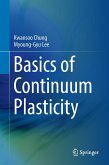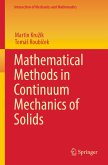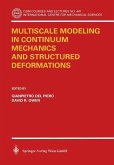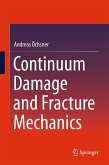This book focuses on mathematical theory and numerical simulation related to various aspects of continuum mechanics, such as fracture mechanics, elasticity, plasticity, pattern dynamics, inverse problems, optimal shape design, material design, and disaster estimation related to earthquakes. Because these problems have become more important in engineering and industry, further development of mathematical study of them is required for future applications. Leading researchers with profound knowledge of mathematical analysis from the fields of applied mathematics, physics, seismology, engineering, and industry provide the contents of this book. They help readers to understand that mathematical theory can be applied not only to different types of industry, but also to a broad range of industrial problems including materials, processes, and products.
Dieser Download kann aus rechtlichen Gründen nur mit Rechnungsadresse in A, B, BG, CY, CZ, D, DK, EW, E, FIN, F, GR, HR, H, IRL, I, LT, L, LR, M, NL, PL, P, R, S, SLO, SK ausgeliefert werden.









